2020 has been heartbreaking, unpredictable and poignant. We checked back in with some of the people who shared their stories about trying to navigate the year that turned their finances upside down, whether they lost jobs, tried to reinvent themselves, or found that business was embarrassingly good.
The coronavirus left Robert Rodriguez and Migdalia Wharton out of work and unable to pay their credit-card bills. Ms. Wharton, a school bus driver, lost her job when schools closed. Mr. Rodriguez, a cancer survivor, stopped driving for Uber because he worried about his health. When they explained their situation to their credit-card lender,
, the bank told them they could skip payments for April and May. After some delays, Ms. Wharton finally started getting unemployment benefits. So in June the couple, who are married and live in Orlando, Fla., started sending payments again. They have both found new jobs, but Mr. Rodriguez is making less than he used to. Ms. Wharton drives a recycling truck for $16 an hour. Mr. Rodriguez is a low-voltage technician contractor, making $15 an hour. For three months, they went without health insurance because they couldn’t afford the premiums. “We don’t want to fall behind,” said Mr. Rodriguez. “The way things are, it doesn’t look pretty.” —AnnaMaria Andriotis
Millions of Credit-Card Customers Can’t Pay Their Bills. Lenders Are Bracing for Impact. (April 25, 2020)
‘It Makes It Hard for Folks Like Me’
For financial cleanup men like Eddie Whiteman, economic downturns are usually good for business.
Photo:
Libby March for The Wall Street Journal
Eddie Whiteman knows nobody is rooting for the repo man, but his business is hurting. In the spring, banks stopped calling him to repossess cars after their owners fell behind on payments. Some lenders were fearful of the optics, others hamstrung by temporary government moratoriums on debt collection. Mr. Whiteman, a tow-truck operator in Erie, Pa., had expected business to pick back up by now, but says his business is still running 15% lower than last year. “Nobody wants to look like the bad guy, and I get that,” he said. “But it makes it hard for folks like me.” His income from towing cars after breakdowns or accidents, which evaporated in the spring as people stayed home, has rebounded. And he has picked up some work from rental-car companies, including a half-dozen assignments to bring in vehicles whose renters had contracted Covid-19 for a touchless return. —Liz Hoffman
Eddie the Repo Man Has Time on His Hands: What Happens When Your Debt Is Suspended (June 18, 2020)
Forced to Choose Between a Job and a Child
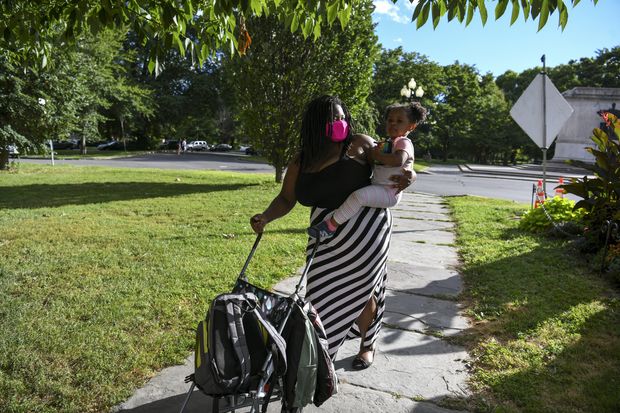
Malaysia Jemison, carrying her daughter, recently stopped receiving food stamps.
Photo:
Cindy Schultz for The Wall Street Journal
“
‘It makes me feel like I jump over one hurdle to be met with another hurdle.’
”
Malaysia Jemison, a single mother in Albany, N.Y., had to leave her job at a home-care agency this summer to care for her daughter. It took a while for her to start getting unemployment benefits, but in September they kicked in, and she also received back pay. What’s more, a reader who was touched by her story sent her some money. Ms. Jemison said she used it to pay bills and help a friend who is a victim of domestic violence. But, she had to rely on food stamps even when she was working, and by November, they stopped coming. Ms. Jemison said she doesn’t know why; the county office that handles food stamps in Albany said its “priority during the pandemic has been to get benefits to eligible applicants as quickly as possible.” Without food stamps, Ms. Jemison has had to visit food pantries instead. She hopes to return to her job, but said she can’t until she has reliable child care again. “It makes me feel like I jump over one hurdle,” she said, “to be met with another hurdle.” —Ben Eisen
How’s the Coronavirus Economy? Great or Awful, Depending on Whom You Ask (Sept. 2, 2020)
Clients ‘Are Nervous as Hell, But They Are at Work at Least’
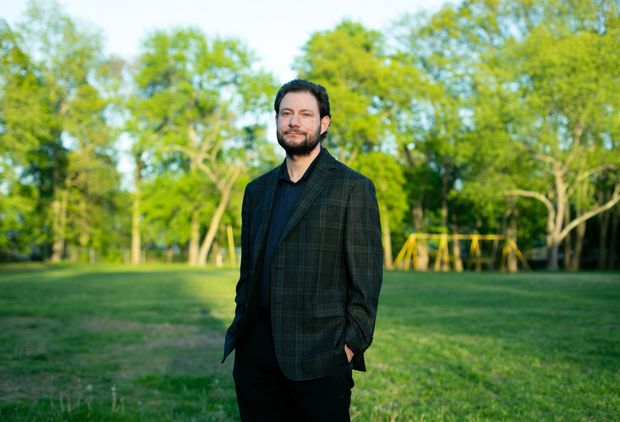
“People are scraping by,” said Andy Posner, whose nonprofit lender has been making small loans to those in need.
Photo:
Kayana Szymczak for The Wall Street Journal
Americans are still struggling, which means Andy Posner’s nonprofit lender is as popular as ever. When the pandemic hit, Mr. Posner’s Capital Good Fund started doling out small loans—$300 here, $1,000 there—to people trying to make ends meet. Now, those loans are his main growth driver, with the total number of loans outstanding roughly quadrupling to about 1,000 since the spring. The lender, which is based in Providence, R.I., has added a handful of employees and now has several dozen. It has also expanded into Texas. But the largest share of its loan portfolio is in Florida, whose economy remains more open than many other states. “A lot of our clients are nervous as hell, but they are at work at least,” Mr. Posner said. Roughly 15% of the crisis loans are delinquent, which he says is within expectations. Depending on how the next few months play out, that number could rise. About a quarter of his borrowers that paused payments on auto loans and other debt in the spring are still in deferral, and the rest are back to making partial or full payments. “People are scraping by,” Mr. Posner said, “but they are terrified and stressed and at their wit’s end.” —Ben Eisen
A Tiny Lender Sorts Through the Wreckage of Americans’ Finances (May 30, 2020)
Trying to Hang on for a Few More Months
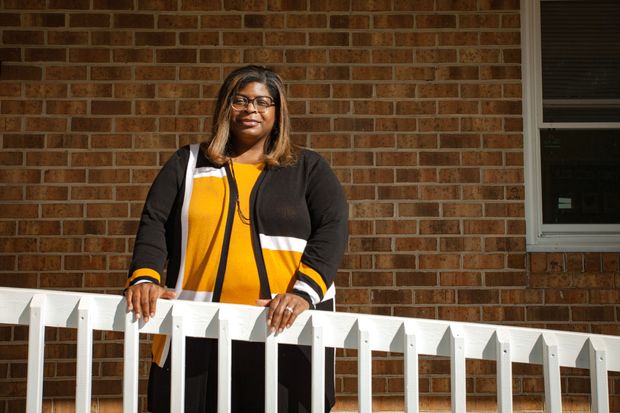
Cassandra Brooks of Little Believer’s Academy says a financial lifeline came in November, just when she felt like giving up.
Photo:
Colby Katz for The Wall Street Journal
SHARE YOUR THOUGHTS
What has 2020 been like for your finances? Join the conversation below.
Cassandra Brooks is hoping to get through the winter. Mrs. Brooks runs Little Believer’s Academy, a two-location day care in the Raleigh, N.C., suburbs. During coronavirus, her enrollment and revenue have plunged, and she has been operating at a loss for most of the year. Her families are struggling too; some have even been in and out of homeless shelters. Little Believer’s got a lifeline in November when a private donor agreed to pay the tuition fees for some families for a few months, as well as other costs. Without that, Mrs. Brooks is sure she would be closed by now. “It was right when I felt like giving up, when I said, ‘I can’t do this anymore,’” she said. “I know that was a sign for God telling me to keep taking care of these children.” Mrs. Brooks worries about coronavirus cases spiking this winter, but she keeps telling herself she just needs to hang on until March. She’s hopeful that, by then, more people will be vaccinated, more parents will feel comfortable sending their children to day care, and a new administration can provide more emergency aid for the industry. “It’s hard, but I’m thankful I’ve survived this long,” Mrs. Brooks said. She hung her Christmas lights extra early. —Christina Rexrode
Coronavirus Threatens to Push the Child-Care Industry Over the Edge (Oct. 17, 2020)
From a Hot Ticket to Christmastime Layoffs
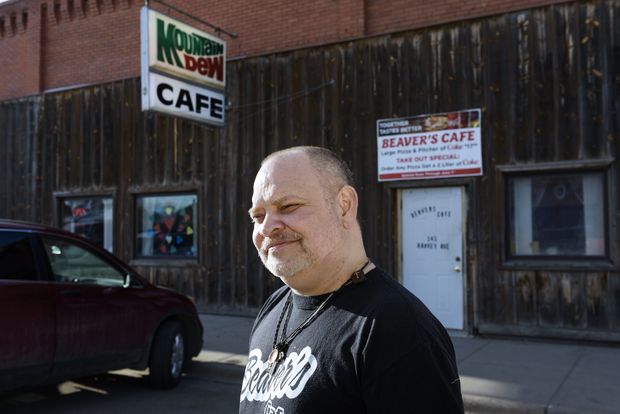
“The little guy is getting crushed right now,” says Steve Novak, owner of Beaver’s Cafe in Minto, N.D.
Photo:
Dan Koeck for The Wall Street Journal
“
‘It’s the middle-class people that are having their asses handed to them.’
”
Beaver’s Cafe was the hottest ticket in Minto, N.D., this summer after a Paycheck Protection Program loan helped it stay open. Business boomed between July and October, said owner Steve Novak, a time when North Dakota recorded relatively few cases of Covid-19 and local farmers put in dozens of orders for Beaver’s burgers to feed their crews during the growing and harvest seasons. By Halloween, however, the state’s per capita count of new coronavirus infections was the second highest in the country. By December, about one of every four people tested in Walsh County, where Minto is located, was positive with the coronavirus—including Mr. Novak’s mother. Beaver’s customers started to stay home, and Mr. Novak was forced to discontinue breakfast service and lay off the full-time employees. He said he has enough personal savings to give Christmas send-off gifts to his staff, and he and his mother, who recovered from coronavirus, can keep the cafe open until the end of January “unless things really go to hell.” After that, he’s not sure. “The little guy is getting crushed right now; the big corporations aren’t,” Mr. Novak said. “It’s the middle-class people that are having their asses handed to them.” —Peter Rudegeair
Small Businesses Were at a Breaking Point. Small Banks Came to the Rescue. (May 4, 2020)
The Ruin That Didn’t Happen (Yet)
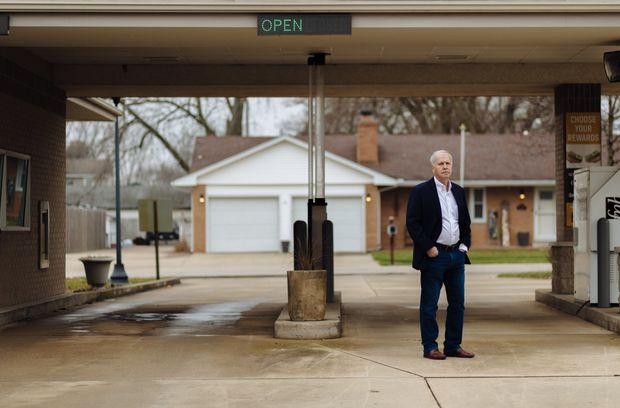
“We’re almost embarrassed to say we’re having a record year,” says Mike Estes of Fisher National Bank.
Photo:
Lucy Hewett for The Wall Street Journal
2020 was supposed to be the year Mike Estes prepared to retire. Instead, it has been one of the most intense in his 45 years as a community banker. In late March, Mr. Estes fretted about the fate of small businesses in the tiny town of Fisher, Ill. Forced to close during statewide shutdowns, they were losing money and laying off employees. He also worried about loan losses at Fisher National Bank, the $150 million bank where he has worked since the 1970s and is now president. But the intervening months have brought far less ruin than Mr. Estes expected. Most business customers have stayed afloat, thanks in part to relief programs including the Paycheck Protection Program. There are slightly fewer noncurrent loans on the bank’s books than before the pandemic. Mr. Estes worries the payment deferrals the bank has granted many businesses and consumers could begin to hurt it in 2021. Still, plentiful deposits mean Fisher is “as liquid as we’ve ever been,” Mr. Estes said. Assets at Fisher were up 16% in mid-December compared with the same time last year. “We’re almost embarrassed to say we’re having a record year,” he said. The pandemic became more personal for Mr. Estes this month when his 92-year-old father was admitted to the hospital with Covid-19. Mr. Estes said health-care workers are his heroes, “and so is my dad, to me.” —Orla McCaffrey
As Coronavirus Spreads, Community Banks Watch for Fallout (March 30, 2020)
Copyright ©2020 Dow Jones & Company, Inc. All Rights Reserved. 87990cbe856818d5eddac44c7b1cdeb8





